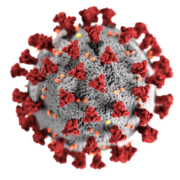The officials were not authorized to comment and insisted on anonymity to discuss the yet to be publicly announced move. White House National Security Council officials declined to comment on the matter.
The determination by the outgoing one-term Democrat is likely to be reversed as early as next week after President-elect Donald Trump, a Republican, takes office and Secretary of State-designate Marco Rubio assumes the position of America’s top diplomat.
Rubio, whose family left Cuba in the 1950s before the communist revolution that brought Fidel Castro to power, has long been a proponent of sanctions on the communist island. Rubio will appear before the Senate Foreign Relations Committee on Wednesday for his confirmation hearing and is expected to address his Cuban roots in his testimony.
In the final days of Trump’s first administration, on Jan. 11, 2021, the White House reinstated the designation, which had been reversed during the period of rapprochement between Cuba and the United States during President Barack Obama’s second term in office. In doing so, the Trump administration cited Cuba’s support for Venezuela’s leader, Nicolas Maduro, and its refusal to extradite Colombian rebels to Colombia, among other issues, including its continued harboring of wanted Americans.
The move to designate Cuba by Trump was one of several foreign policy moves he made in the final days of his first term.
Human rights groups and activists, including the U.S. Conference of Catholic Bishops, have been pressing the Biden administration to lift the designation.
There was no immediate comment from Rubio or his office, but one of his Republican colleagues on the Senate Foreign Relations Committee, Texas Sen. Ted Cruz, quickly denounced the Biden administration move.
“Today’s decision is unacceptable on its merits,” Cruz said in a statement. “The terrorism advanced by the Cuban regime has not ceased. I will work with President Trump and my colleagues to immediately reverse and limit the damage from the decision.”









